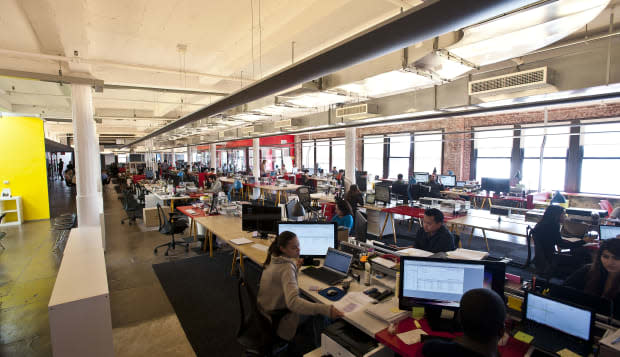Thinking of Joining a Startup? Read This Before You Do

Perhaps you heard that WhatsApp was just acquired for approximately $19B by Facebook and you're interested in working for a startup. Maybe you even have friends who work for startups who tell you it's fun and challenging and you want in the game. Before taking the leap to join the next dot.com, dot.me, dot.io, or dot.anything, here are a few things you should know.
Most startups fail. Can you handle the risk?
If you think you're going to make a bazillion dollars building the next Facebook, Instagram, WhatsApp, or Uber, think again. Most startups fail. Others are on the long path to nowhere. Only a select few find the way to acquisition or IPO. Joining a startup is risky business and, while you should never join a startup in the hopes of some "get rich quick" plan, you should make sure you can stomach the risks that go along with the idea of an uncertain future at a startup – one that could bring enormous upside, or one that could leave you searching for your next move.
Ideas are a dime a dozen. Can this team execute?
I've heard hundreds, maybe thousands of good startup ideas. I've had friends tell me that Instagram was an idea they had, too. Of course it was! The difference between them and Instagram was one key difference: execution. Most of the best ideas sound simple. However, growing any startup to gain any traction requires real skill, determination, and the ability to execute. As you get to know the company and founders, listen carefully to what they've accomplished, what they've learned and how quickly they were able to adapt to the market. If you find a team that uses metrics to measure success, that's listening intently and making changes to their product, and constantly testing new ideas, you could have found a winner. If the team does a lot more talking than doing, you should let them do a lot more talking to someone else.
Does my butt look big in these jeans? Fit matters!
Fit is a two-way street. The days at startups can be long, tiresome, frustrating, rewarding, demanding, and fun. In the process, you'll be spending a ton of time with the other people in the company. Do you get along personally? I know some startups that take this so seriously that they won't hire anyone who they wouldn't trust to babysit their children. In that pursuit, they make sure every new hire is an amazing cultural fit for their organization. You should, too. The best companies will see you as a true part of the team, not just an employee, so you should make sure you like your teammates, too.
There should be a clear(ish) path to your future.
Almost by definition startups don't have a clear path to anything. That said, they should have a very clear mission and decent idea of how to get there. If along the path to getting to that goal, you and the company have ideas of how you could be challenged and take on more responsibility, that's a positive sign that you'll grow with the company. If that company has only a short term need for your skillset and no idea where you'll go next, it might be a sign that this opportunity will be short lived and so should your interest in them be.
Would you write them a check?
Having worked in the venture capital world, choosing which startup to work for reminds me of similar qualities investors look for in choosing companies in which to invest. You should think of joining a startup – or any company in my opinion – in much the same way. Would you invest your money with this company? If not, why invest your time there? While the need for a short-term paycheck is important, if you don't believe in the long-term plans of the company, why spend your most valuable resource –- your time -- in something in which you don't believe.
Working for startups can be great fun and very rewarding. In some rare cases, they might even be highly lucrative. But, most startups aren't the ones you hear about on TV. Most are busting their chops for every new user and holding on tight to build and steer the ship. If you think you have the appetite for risk, have found a team that you believe in, a company that feels like a good fit, and you can see opportunities to grow, get onboard. Maybe you'll even help build the next WhatsApp.
> Find a job with a startup

